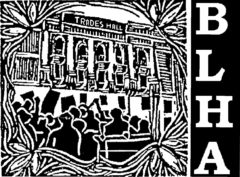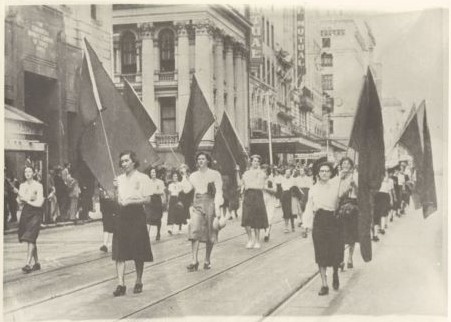Queensland Comrades Speak comprises interviews with former members and supporters of the Communist Party of Australia who were active in Queensland in the 1940s and 1950s. The interviews were based on a discussion of the organising strategies and methods which Party members used during those years. All of the people interviewed were keen that their stories might play a part in labour movement struggles of the coming years. The interviews were conducted during 2013 and 2014, mostly in Brisbane and Townsville.
The project was undertaken by the BLHA with support from a Roger Coates Labour History Research Grant generously awarded by the SEARCH Foundation.
Historical Background
The post-war years in Australia were a time of political activism on a wide range of areas. Workers returned from the war with visions of a better world (and for many, positive visions of socialism in the Soviet Union as Australia’s ally during the war). Trade unions grew in strength, with membership increasing from 40 to 60 per cent of workers over those few decades. Many people were also drawn into activism within the women’s movement, the peace movement, and the Aboriginal support movement.
During this period the Communist Party enjoyed significant influence in Australia – its membership stood at more than 20,000 by the late 1940s. Many of those who joined the CPA during that time became lifelong activists in their trade unions as well as in community politics. Today those former members of the CPA are in their 80s and 90s. They have a story to tell which is quite unique in that they were active in grassroots organising at a time when the Left had immense influence in Australian politics. That situation has not occurred since, and will not be likely to occur in the immediate future. However they are close to the twilight of their lives, and we have a ‘window of opportunity’ of only a few years to help them tell their story and by so doing enrich working-class history.
This project aims to record the anecdotes and experiences related to the organising activities of these comrades – in their unions, and in other political movements. It has not focussed on ideological divisions or assessments of the Communist Party during that period.
The Permission Form for interviewees to sign was based on Creative Commons approach as recommended by the Queensland Oral History Association.
Ross Gwyther, July 2013
Interviews
George Britten
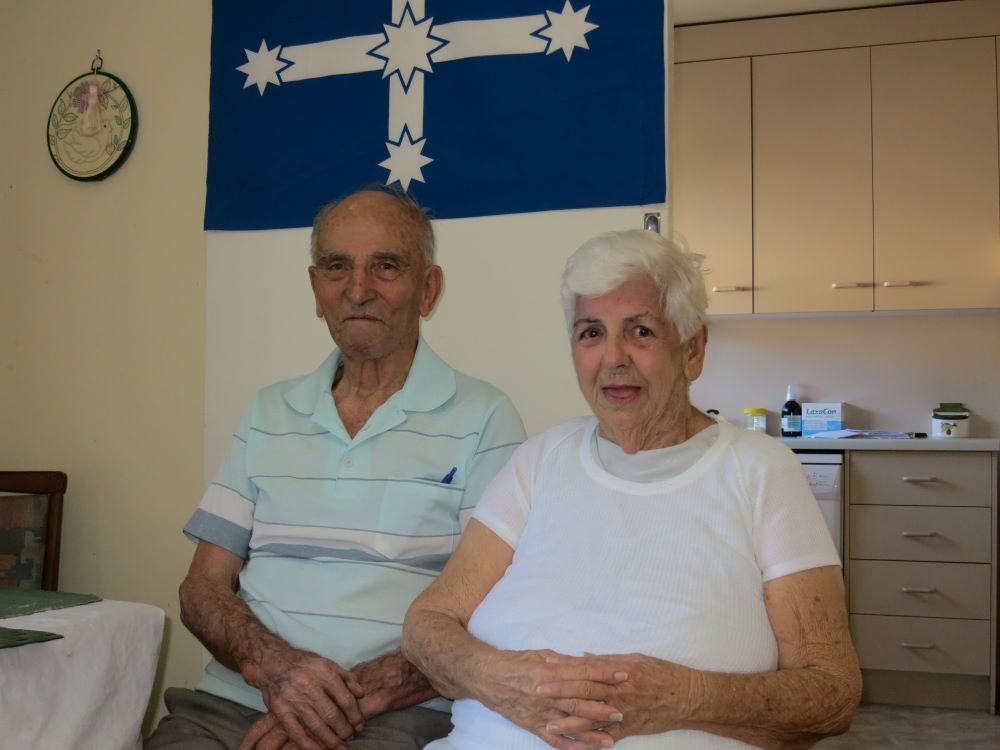
George was born in south-east London, and grew up during the 1920s. His childhood was dominated by the social inequalities of the depression era. He joined the Communist Party in the UK during the war, and emigrated to Australia in 1949, taking up work as a plumber, first in Mt Isa and then in Brisbane. He and his wife Imelda were active for decades in Party affairs as well as union activities.
Dave and Doreen Lofthouse
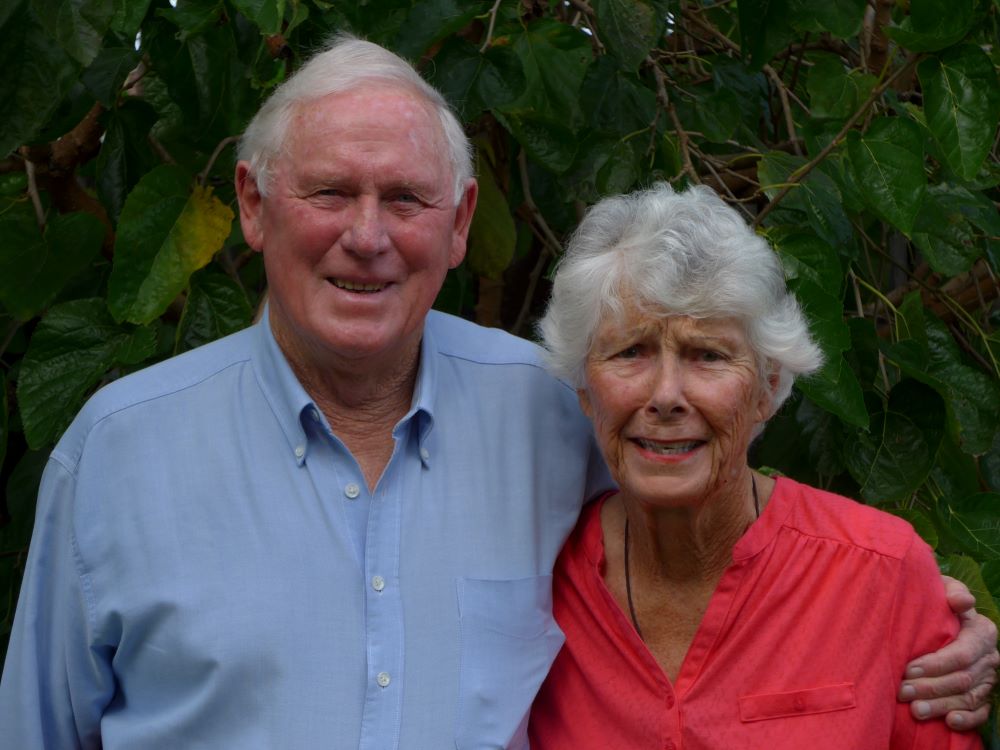
Dave was born into a large working class family in Wynnum, Brisbane, in 1933. He was trained as a motor mechanic and became a union member when he started work in 1949. His life long partner Doreen was born into a Communist family in Monto and trained as a nurse. After moving to Brisbane she met Dave, and through the Eureka Youth League, introduced him to the Communist Party, which they both joined. Dave eventually became a full-time organiser for the Amalgamated Engineering Union, and was also active in the peace movement. In retirement, they remained interested in politics and active in a local ALP branch.
Digger Murphy
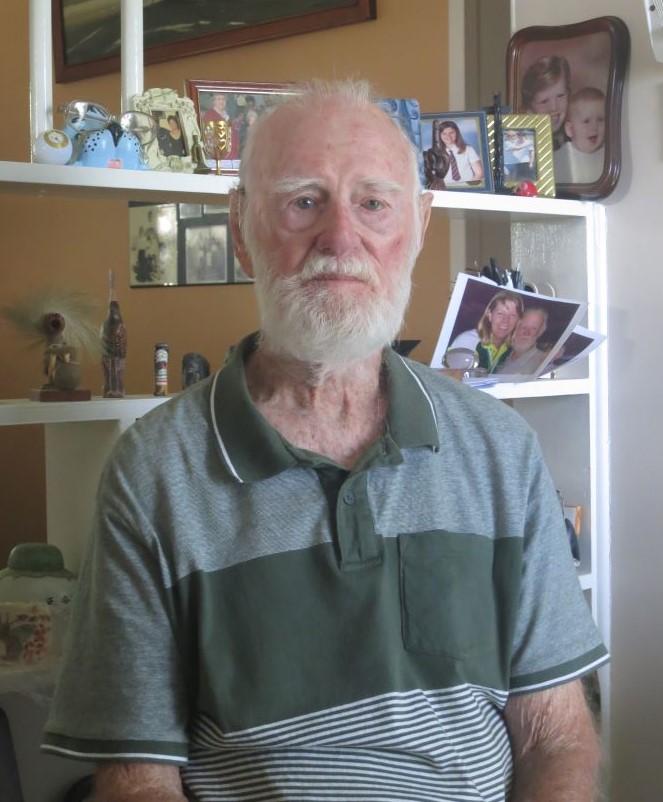
Born in 1919 in Bundamba near Ipswich, Queensland, Digger moved with his family to Collinsville in 1922, and back to Ipswich when he was 11. He spent his youth and working life in Ipswich, working for 20 years as an underground coal miner. He was elected as a safety officer (check inspector) for the Miners’ Union, and then later as President of the Queensland branch of the Union. He was a member of the Communist Party from 1942.
Sonny Myles and Shirley Millar
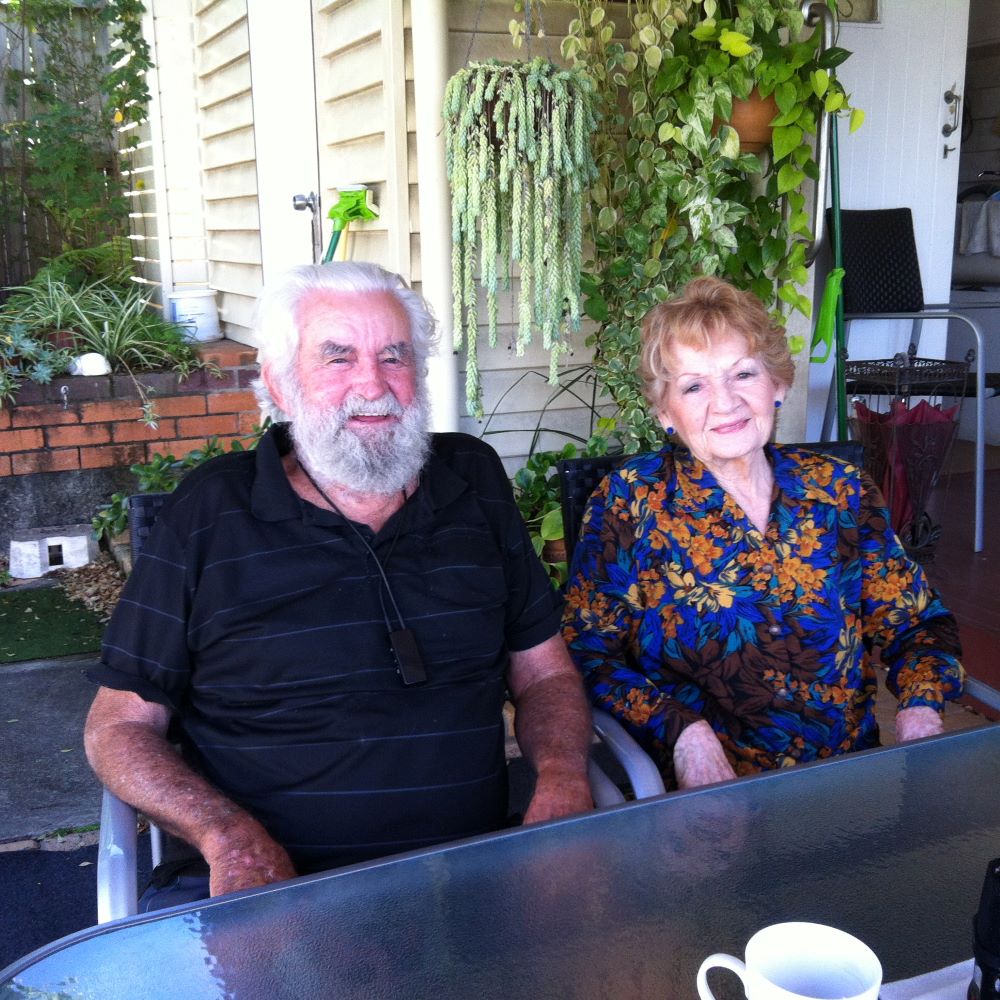
Sonny was born in Scotland and his family arrived in Australia at the start of the depression. He grew up in Collinsville in a left-wing family – his father formed the first Communist Party branch in the town. They moved to Ipswich when he was 11. There, Sonny worked in a variety of jobs, and served as a State and district organiser for the Communist Party.
Shirley is a cousin of Sonny’s. She grew up in Collinsville and then Booval near Ipswich, where she, too, joined the Communist Party. Shirley and Sonny spent four years in China in the 1950s as part of the first study group to travel there. Her sister Constance was also interviewed as part of this project.
Constance Millar
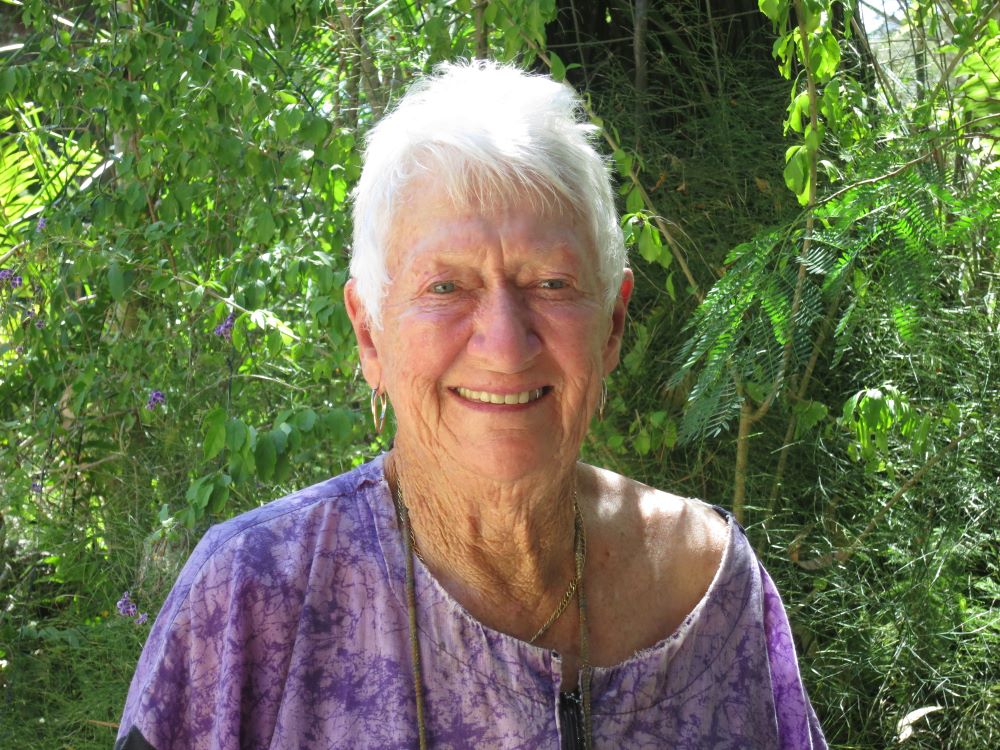
Constance was born and grew up in Collinsville, a coal mining town in northern Queensland with a long history of class-conscious activism. Her political involvement started with the Eureka Youth League in Brisbane, and after joining the CPA in the early 1950s she worked as a typist in the Communist Party state office in Brisbane. She was active in the Seamen’s Women’s Committee, as well as a range of community groups, from the Union of Australian Women to the peace movement.
Lyle Smith
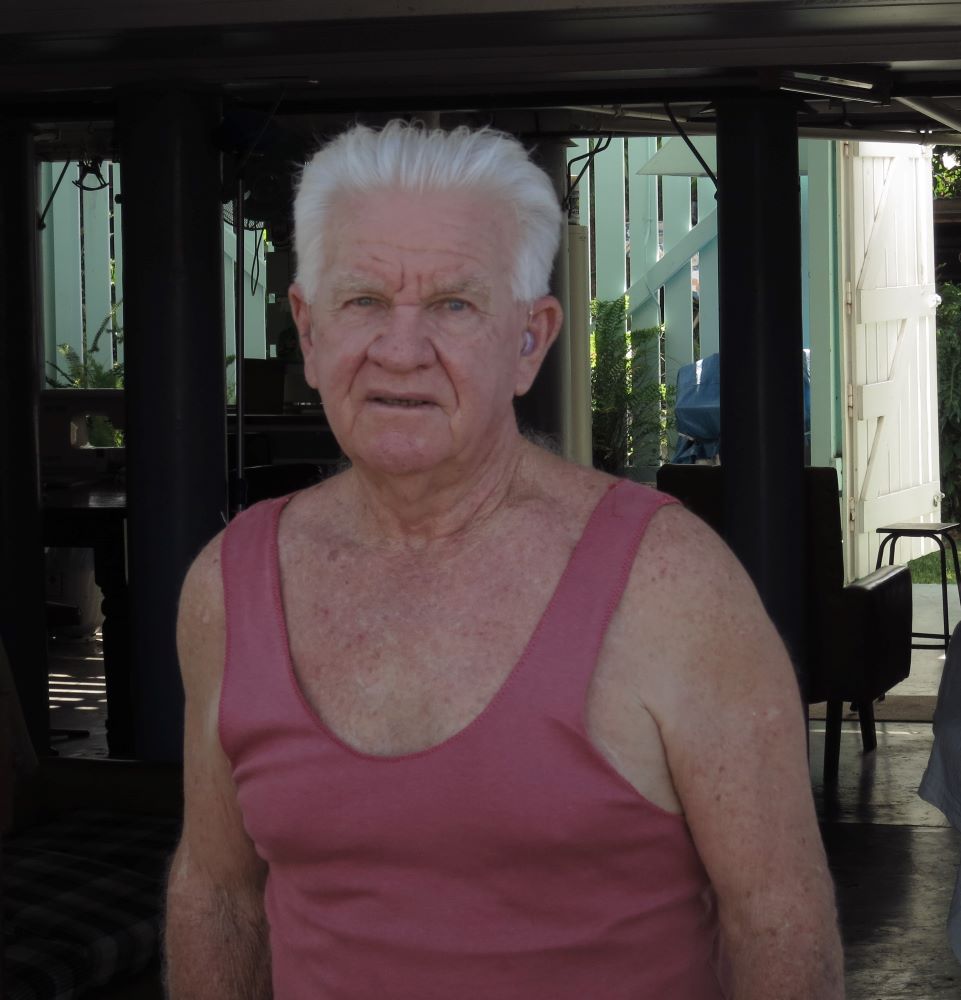
Lyle Smith was born in 1931 in Townsville, and was apprenticed as a carpenter, working with his father. After finishing his apprenticeship he joined the Railways to work in carriage building, and spent his entire working life in the railways in Townsville. His work as a Communist Party member was mostly carried out among his workmates in the railways and in the union.
Jack Hutton
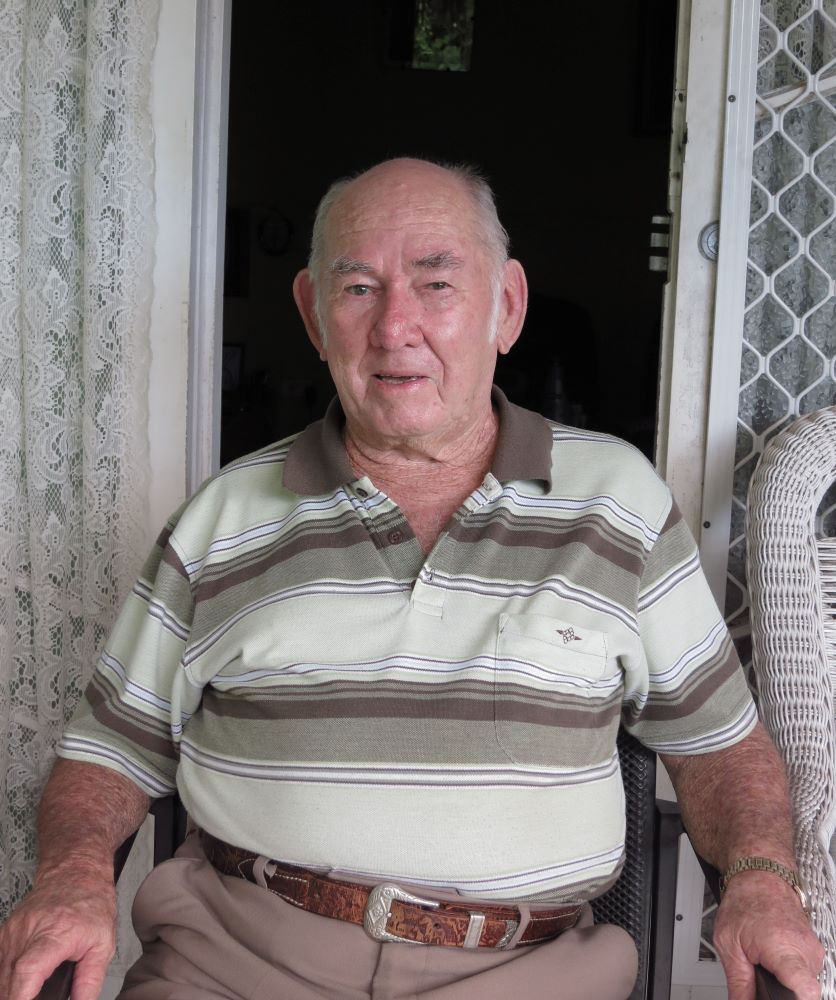
Jack spent his early years in the Burdekin region of Queensland at Ayr, where his father was a cane cutter. Jack trained as a boiler-maker and worked for most of his working years in Townsville at the railway workshops. He was a natural organiser among his workmates, and played an important role in the union over those years. Although he did not join the Communist Party, he was always very close to their aspirations and organisational work
Warren Keats
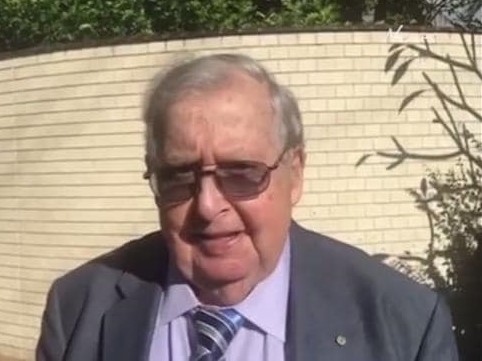
Born in 1928 into a large rural family, Warren grew up in northern New South Wales. He trained as a merchant seaman and worked from 1944 on ships travelling to New Guinea and Europe. On moving to Sydney in 1950, he joined the CPA. He later worked on barges in the Brisbane River, and as a scientific illustrator. Warren has maintained an allegiance to socialism all his life, and published a number of books on the topic.
Kevin McElligott
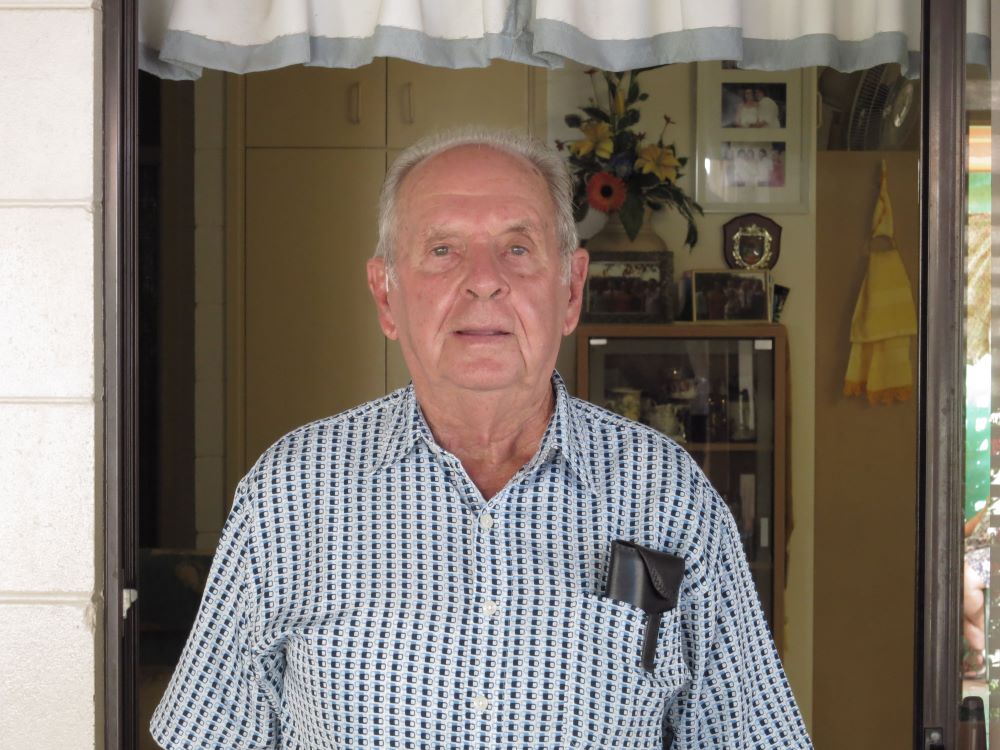
Born in 1929 at the start of the depression, Kevin grew up in Maryborough, Queensland. After finishing an apprenticeship as a blacksmith, he moved north to work, first to Rockhampton, and then to Townsville, commencing work in the railway workshops, and then later working as a boilermaker for the Townsville City Council. After encountering ideas about socialism during his involvement in the union at work (the Amalgamated Engineering Union), he joined the Eureka Youth League in Rockhampton and then the CPA after moving to Townsville. He was very active in union affairs for the rest of his working life.
Loma Thompson
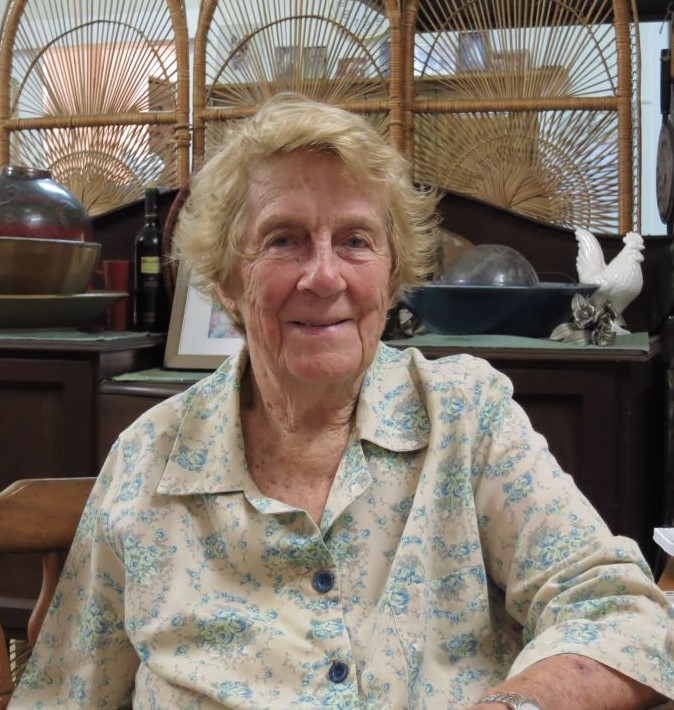
Loma grew up in Victoria in the 1920s, and worked in offices and then as a nurse. She joined the Communist Party during the War, and moved to Townsville in around 1948. She was active in the Communist Party and helped to establish a branch of the Union of Australian Women in Townsville. Her husband Fred was a well known Party activist and organiser for the Metal Workers’ Union, and played a prominent role in the 1961 Mt Isa Mines struggle. At the time of the interview, Loma lived in Townsville with her son Peter and was still active in community affairs..
Stan Irvine
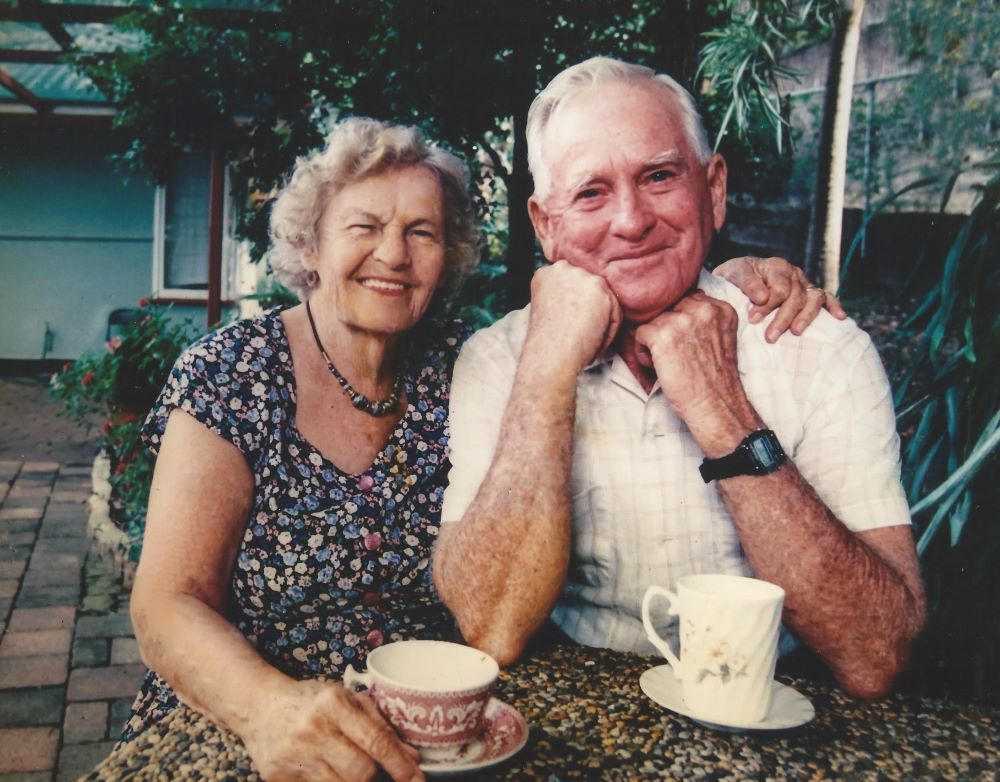
Born in the Brisbane suburb of Carina in 1921, Stan finished a carpentry apprenticeship in 1942, and spent the final three years of World War 2 as a soldier in New Guinea. It was during this time that he experienced political discussions organised by Communist Party members amongst the troops. Following the war Stan spent some time working for small builders, and then the rest of his working life employed at the Princess Alexandra hospital as a carpenter. He joined the CPA in 1946, and has spent all of his life active in the union, local community politics and the peace movement. The accompanying photograph shows Stan and his wife Flo.
Wally Stubbings
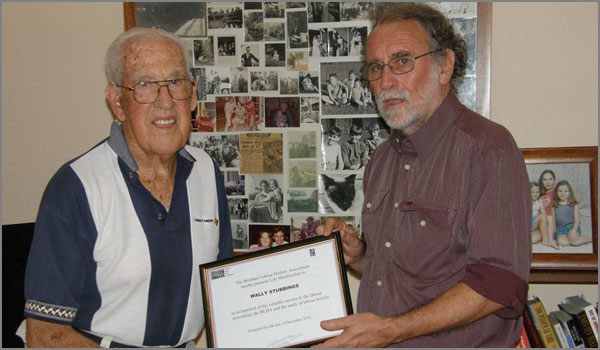
Wally was born in Northwest Tasmania just before the outbreak of the World War 1, and spent his youth as a timber worker in Strahan on the Tasmanian west coast. He moved with his wife Ada to Hobart in 1933 to work on the wharves, and became an active member of the Waterside Workers’ Federation. In 1943 they moved to Brisbane, where he spent the rest of his working life as a wharfie. In Brisbane he also joined the Communist Party, and was active in a wide range of working-class and community politics. When interviewed for this project, Wally was 100 years of age and living in a retirement village at Cleveland, Brisbane. The accompanying photograph shows Wally (left) receiving life membership of the BLHA from former President Greg Mallory.
Rena McCawley
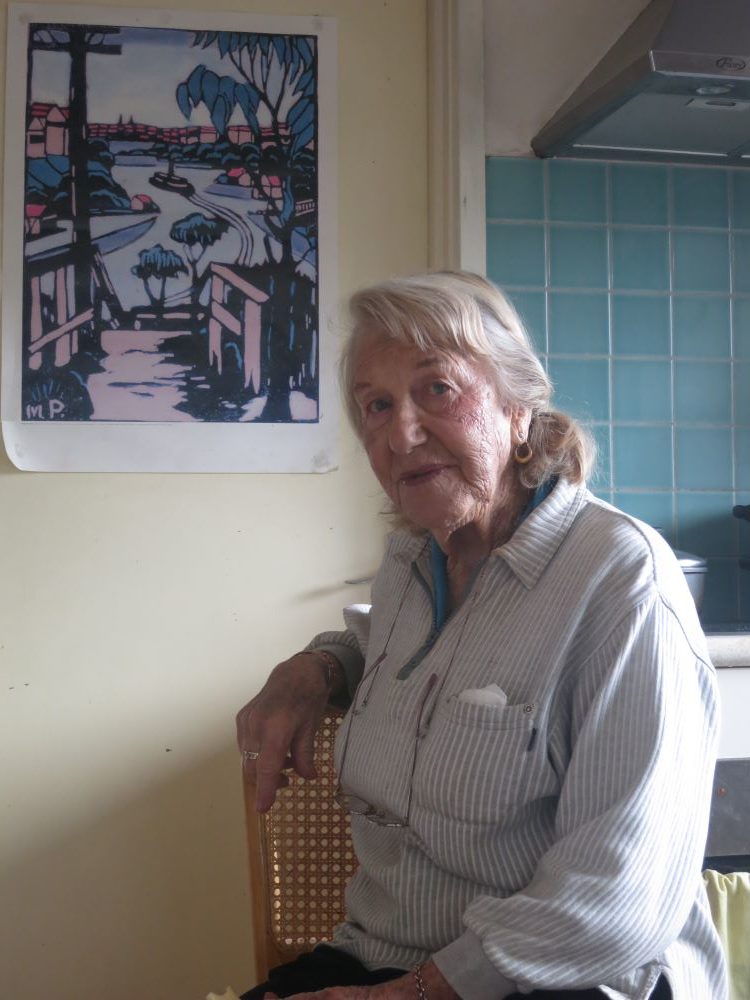
Rena was born in 1916 to a Russian mother and an English father and spent her early years in Europe. The family moved to Sydney in 1927 and she gained a life-long interest in photography from her father’s photography business. After a move to Stanthorpe in Queensland, Rena settled in Brisbane, where she began her working life. Her involvement in the Communist Party came about through her activity in the New Theatre movement, where she met her long-time friend Connie Healy (nee Lovegrove).
Stan Heilbronn
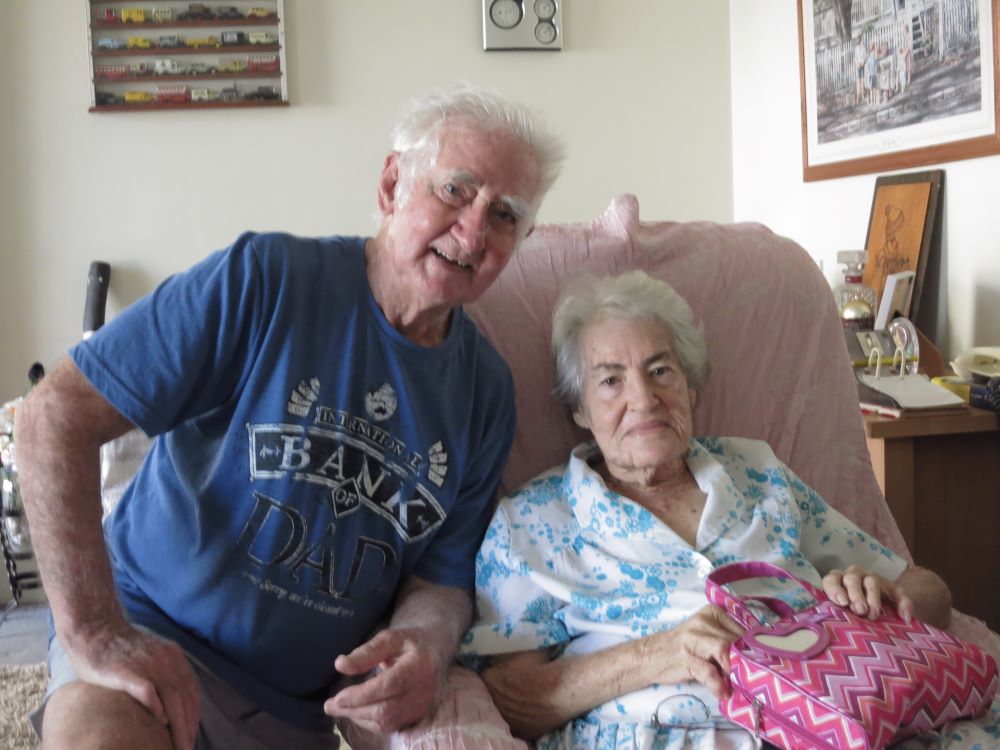
Stan was born in 1930 in Townsville. His father Eddie was a widely-respected Communist Party activist in North Queensland. Stan worked first in the railways in Mt. Isa and then a range of jobs in Townsville, ending up as a clerk for the rest of his working life. He joined the Communist Party during the 1950s, was active in the Clerks’ Unions, and also in school P&C activities. Stan and his wife Betty continued their involvement in community political activities in their retirement.
